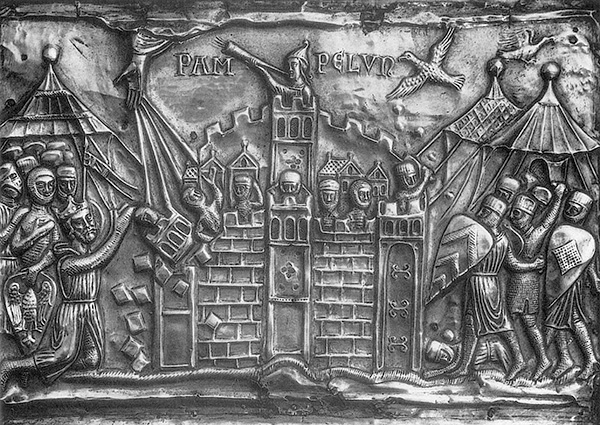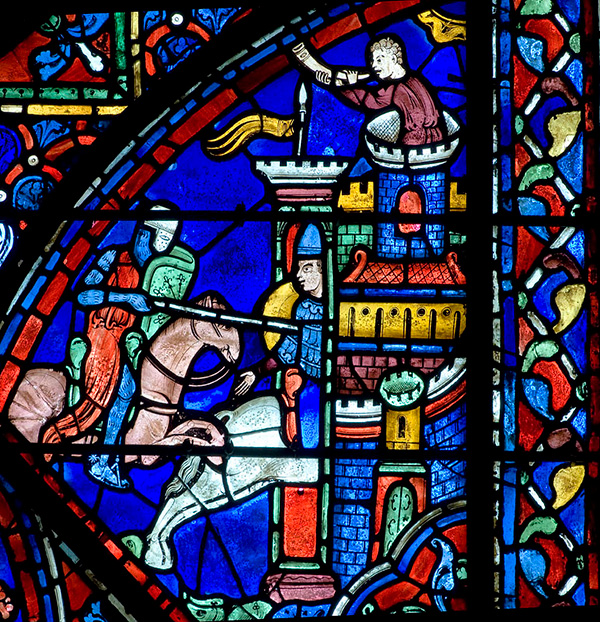
After capturing Pamplona, the Frankish army advanced towards Zaragoza. As the two legions converged at the city gates, Hussain ibn Yahya al-Ansari, the wali of Zaragoza, unexpectedly refused to open the gates, contrary to the agreements made at Paderborn.
The geopolitical stance of the wali had significantly strengthened from the time of the Paderborn diet in the spring of 777 to the winter of the same year. Al-Ansari had successfully defended Zaragoza against an assault by the forces of the Emir of Cordoba in the fall of 777 and had captured the commanding officer of the besieging forces, Ta'iaba ibn 'Obeyd. This victory meant he no longer felt compelled to submit to the Frankish king’s authority.

The establishment of the Hispanic March depended on stable and firm control over the major cities in the Ebro Valley, a condition not met due to the unpredictable stance of the Muslim governors. Additionally, King Charles found himself unprepared to lay siege to Zaragoza directly.
Faced with these setbacks and the failure to establish the Hispanic March, King Charles chose to retreat with his entire force of two legions through Pamplona. Aware that maintaining control over Pamplona was untenable, King Charles, before his departure, ordered the demolition of the city walls to forestall any future uprisings by the Basques, stating this action was to ensure they would not "declare themselves in rebellion" (fieret ne forte rebellis).